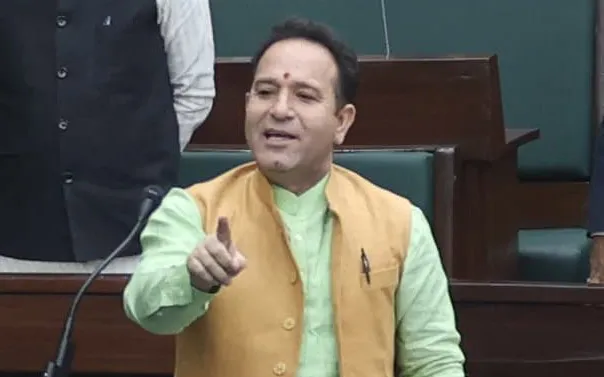Srinagar: A court here on Friday dismissed a case related to alleged violation of the Model Code of Conduct by PDP leader and MLA Waheed-Ur-Rehman Parra during parliamentary elections in south Kashmir’s Pulwama district last year.
Dismissing the case, Additional Special Mobile Magistrate, Awantipora, Muneer Ahmad Bhat said that following the principles of law laid down by the Supreme Court and the facts of the case, no cognisance is taken of the offence under section 188 of the Indian Penal Code.
“The challan (police chargesheet) is dismissed and the accused (Para) is released. The bail bonds and personal bonds of the accused are discharged. The seized documents/articles, if any, shall be delivered to the rightful owner/claimant who is entitled to that on execution of his personal bond, and they shall be held subject to orders, if any, of the appellate court,” the court said.
Parra, the PDP candidate from Srinagar Lok Sabha constituency, had organised a rally in the form of a roadshow on April 27 in violation of the poll code and was subsequently booked by police under section 188 of the IPC for disobedience to an order promulgated by a public servant.
“Reverting to the facts of the case in the light of the principles of law laid down by the Supreme Court, it is quite vivid that the offence under Section 188 of the IPC can be taken cognizance of only in accordance with Section 195(1)(a)(i) of the CrPC. Since the instant challan (police chargesheet) is without a written complaint, as such no cognisance is taken of offence under Section 188 of the IPC,” the order read.
It said that by no means can the poll code be classified as an order under section 188 of the IPC.
“The model code of conduct (MCC) serves solely as guidance for parties and candidates. It was established through the consensus of political parties in India with the aim of strengthening the foundations of the political system in our country. Clearly, it lacks statutory backing, and many of its provisions are not legally enforceable.
“It is the political parties themselves that have agreed to adhere to the principles outlined in this Code, thus binding them to respect and follow it both in letter and spirit. Even if the MCC is considered an order under section 188 of the IPC, the document MCC itself does not specify which public servant issued this order,” the court said.
It said this clarification is crucial, as cognisance of an offence under section 188 of the IPC can only be taken upon a complaint from the public servant whose order was violated, or from their superior.
“Undoubtedly, the MCC is issued by the Election Commission of India, a constitutional body; thus, ideally, any prosecution should be based on a complaint from the Election Commission itself. Consequently, the requirements of Section 195 of the CrPC are not met in this case, rendering the prosecution merely a formality,” the order added.








